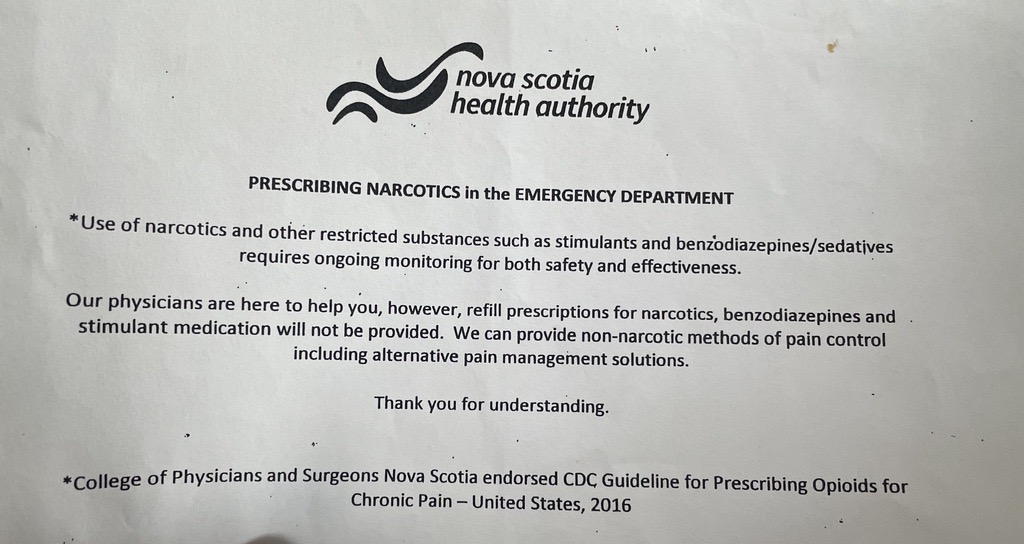For the past 10 years, Halifax resident Michael Neath has used transdermal fentanyl patches for his chronic pain — the result of a workplace injury.

Keeping detailed accounts of when to change patches and what side of his chest to switch to, this week he was due for the refill that he gets every six months.
“I went through the triage and through the doctors and I explained to each and every one of them, ‘The only reason I’m here is because I lost my family doctor and I need my transdermal fentanyl patches renewed,'” Neath said.
The problems began when his doctor retired last year and no one else would approve his medication.
Neath resorted to going to the ER at QE II for his refills where he waited for three days to be told that they won’t refill opioid prescriptions.
Nova Scotia Health confirmed by email that virtual care options wouldn’t allow for opioid prescription refills either, saying “opioid and other controlled substances cannot be refilled in a virtual care environment based on college guidelines. As such, each zone has mechanisms in place to support these patients.”

Get weekly health news
After calls and emails to politicians, help lines and virtual care, Neath was without answers.
On Wednesday, his prescription ran out.
“And I was told by my doctor before he retired, ‘Don’t ever go cold turkey off this medicine, it can kill you. It’s very dangerous,'” he said.
Without a new prescription, Neath started reusing old fentanyl patches on Thursday to ensure he wouldn’t go into withdrawal.
Luckily, that day he heard back from his pharmacist with an update on whether they could provide an emergency refill.
“We have special permission, we can give you a one month supply of your fentanyl patch,” Neath recounts his pharmacist saying.
He received what was described to him as a one-time emergency refill that would last 30 days — something Nova Scotia College of Pharmacists CEO & Registrar Beverley Zwicker says isn’t true.
“We will certainly be communicating to all pharmacies and pharmacists just a clarification that, while it’s a 30 day increment, there’s nothing that prevents a pharmacist from continuing to prescribe 30 day increments. It’s not intended to be a one-time emergency fill.”
The Registrar confirmed to Global News that a pharmacist is able to assess a patient and prescribe renewals on an ongoing basis — and that includes for opioids.
“Pharmacists are actually best positioned to be prescribing and maintaining people on their drug therapy,” Zwicker said.
“Making changes to it, adding new medications, whatever is necessary so that the drug therapy continues to best serve their health condition.”
It’s a relief for Neath, but there’s still work to be done.
“The best case scenario would be to have a family physician. I mean, the fentanyl patches are very dangerous and I should be monitored.”











Comments
Want to discuss? Please read our Commenting Policy first.